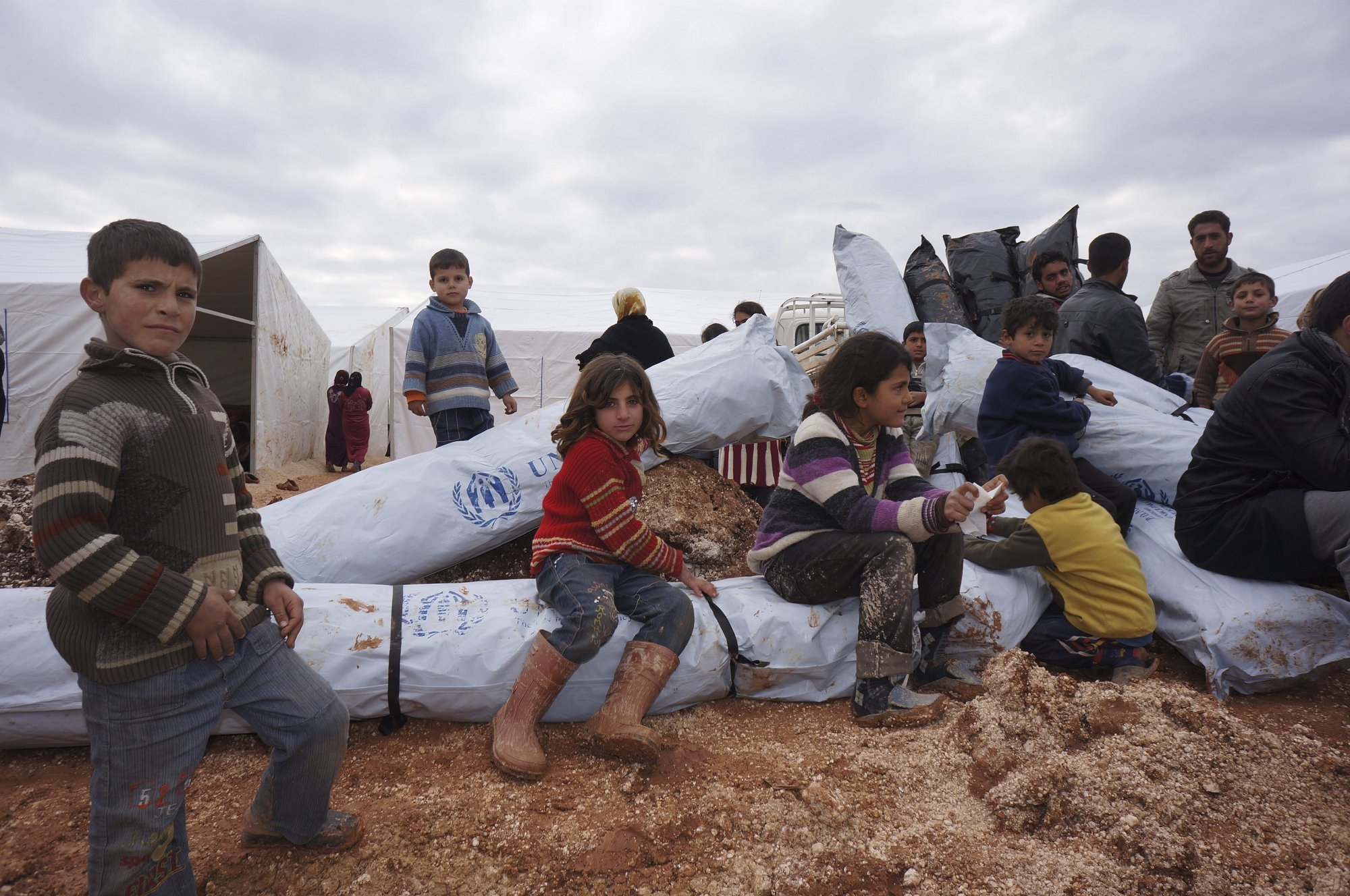Chad fishing project gives Nigerian refugees a lifeline
Chad fishing project gives Nigerian refugees a lifeline

TAGAL, Chad, April 5 (UNHCR) – Mending nets, cleaning fish and adjusting them over a fire near this lakeshore village in Chad, Abakar Garba Ibrahim says he has his dignity back.
"Being able to do this, it's like I have been saved from the fire," said Ibrahim, who fled the violence in Nigeria last year. "I was spending my days sleeping, doing nothing and waiting for assistance. Now I am someone."
A fisherman by trade, Ibrahim lost his livelihood after Boko Haram militants drove him from his village more than a year ago. He is now finding his feet again in Chad with the help of a UNHCR-backed project.
A father with 16 children and two wives, he is among 100 recently arrived refugees from Nigeria given the chance to fish at a camp near Tagal, a small community on one of the many inlets of Lake Chad, in western Chad.
Fishing is important to the regional economy, supplying local markets -- especially the popular weekly market in Baga Sola, a dozen kilometres away -- and others in neighbouring Cameroon, Niger and Nigeria, whose borders converge at the lake.
The project, developed by UNHCR, the UN refugee agency, in tandem with the local non-profit organization Secours Catholique et Développement (SECADEV), began working in December with refugees from Dar Es Salaam camp, which lies in the north of Baga Sola.
The programme provides them with fishing licences, small boats and ecologically sound fishing nets that allow small fry to escape and help preserve this important resource, which remains a lifeline for many lakeside communities, despites the effects of climate change. They receive training in good fishing practices and management, as well as techniques for storing the fish.
The project gives participants benefits that include food, an income and an occupation, according to Lydie Navigue, head of the UNHCR field office in Baga Sola.

"It gives its one hundred beneficiaries the possibility to generate some revenue and complement the food and non-food assistance provided to them," Navigue said. "It also brings some normality to their refugee experience as they take control of some aspects of their own lives by doing an activity they used to do before they fled their homes in Nigeria."
Ibrahim used to have six boats and other business interests in Nigeria. Now, he shares a boat with nine other refugee fishermen from the Dar Es Salaam camp, following a schedule that they have worked out among themselves.
Two of his sons help him at the lakeshore fishing camp but, like the other refugees, Ibrahim has left the rest of his family in Dar Es Salaam camp and he visits them there from time to time.
"Only the two boys are here with me", he said. "It is difficult, but it is better this way as the school and the health centre are in the camp. Here the conditions are tough, but we manage."
Another refugee fisherman, Omar Maikanti, has also been helped by the project. As he sells his catch on the shore, he proudly explains that he had earned 2,000 naira -- the Nigerian currency is used along with with the CFA franc -- and had sent half the money to his wife at the camp. "I am a good husband, again providing for my family from the fruits of my labour and sweat", he said with a smile.

By Ibrahima Diane, Tagal, Chad








